S1.23 Julia Tenney 2
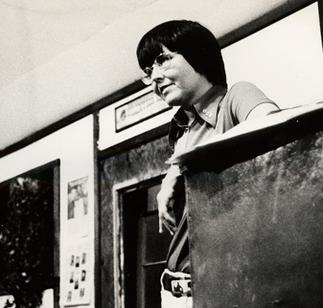
Mary Daily
Daly published a number of works, and is perhaps best known for her second book, Beyond God the Father (1973). Beyond God the Father is the last book in which Daly really considers God a substantive subject. She laid out her systematic theology, following Paul Tillich's example. Often regarded as a foundational work in feminist theology, Beyond God the Father is her attempt to explain and overcome androcentrism in Western religion, and it is notable for its playful writing style and its attempt to rehabilitate "God-talk" for the women's liberation movement by critically building on the writing of existentialist theologians such as Paul Tillich and Martin Buber. While the former increasingly characterized her writing, she soon abandoned the latter.
Mentioned by Jim

TERF
TERF is an acronym for trans-exclusionary radical feminist. First recorded in 2008, the term was originally used to distinguish trans-inclusive feminists from a group of radical feminists who reject the assertion that trans women are women, the inclusion of trans women in women's spaces, and transgender rights legislation. Trans-inclusive feminists assert that these ideas are transphobic. Use of the term TERF has since broadened to include reference to people with trans-exclusionary views who are not necessarily involved with radical feminism.
Mentioned by Julia Tenney
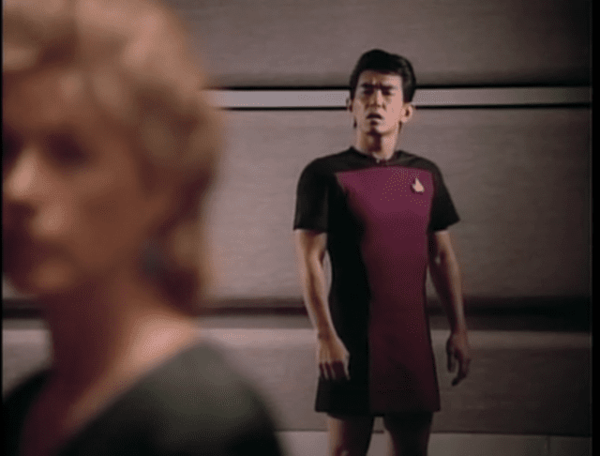
Star Trek TNG & men in skirts
There are few more controversial elements about the original Star Trek series than the Starfleet mini-skirt. In the classic series, men of Starfleet had a wide variety of uniforms. They wore pants with shirts, pants with jackets, pants with tunics, and variations in-between. But women of Starfleet almost without exception wore dresses. In fact, the majority of them wore mini-skirts.
Mentioned by Julia Tenney
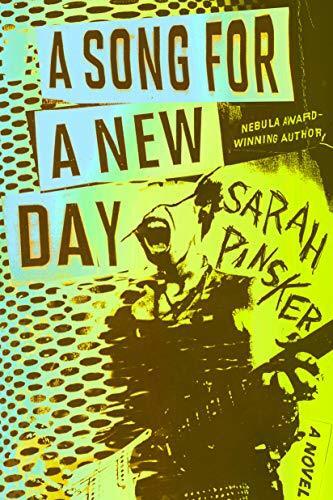
A Song For A New Day
by Sarah Pinsker
In the Before, when the government didn't prohibit large public gatherings, Luce Cannon was on top of the world. One of her songs had just taken off and she was on her way to becoming a star. Now, in the After, terror attacks and deadly viruses have led the government to ban concerts, and Luce's connection to the world—her music, her purpose—is closed off forever. She does what she has to do: she performs in illegal concerts to a small but passionate community, always evading the law.
Recommended by Julia Tenney and Jim
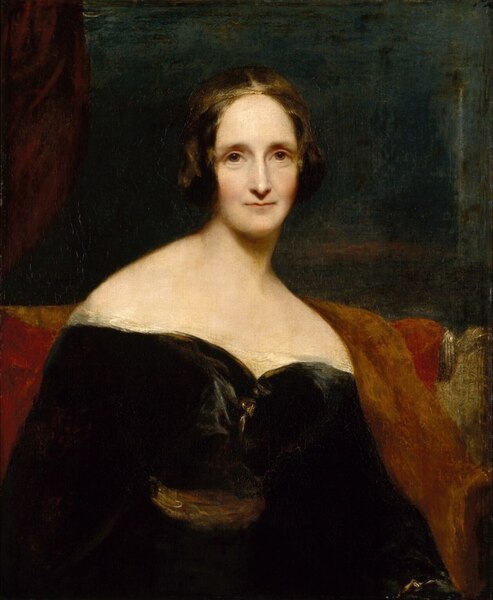
Mary Shelley
Until the 1970s, Shelley was known mainly for her efforts to publish her husband's works and for her novel Frankenstein, which remains widely read and has inspired many theatrical and film adaptations. Recent scholarship has yielded a more comprehensive view of Shelley's achievements. Scholars have shown increasing interest in her literary output, particularly in her novels, which include the historical novels Valperga (1823) and Perkin Warbeck (1830), the apocalyptic novel The Last Man (1826) and her final two novels, Lodore (1835) and Falkner (1837). Studies of her lesser-known works, such as the travel book Rambles in Germany and Italy (1844) and the biographical articles for Dionysius Lardner's Cabinet Cyclopaedia (1829–1846), support the growing view that Shelley remained a political radical throughout her life. Shelley's works often argue that cooperation and sympathy, particularly as practised by women in the family, were the ways to reform civil society. This view was a direct challenge to the individualistic Romantic ethos promoted by Percy Shelley and the Enlightenment political theories articulated by her father, William Godwin.
Mentioned by Julia Tenney
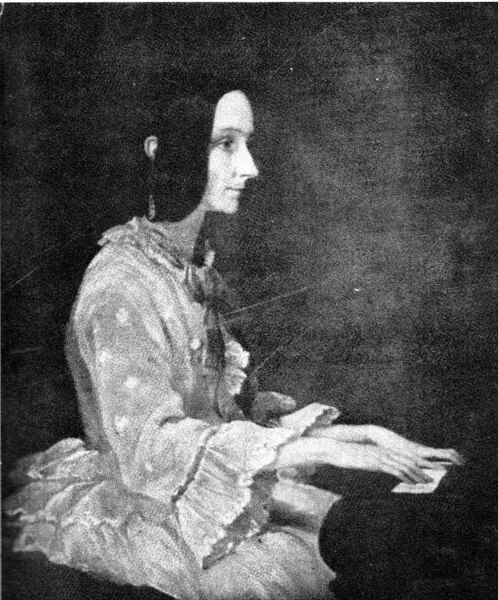
Ada Lovelace
Between 1842 and 1843, Ada translated an article by Italian military engineer Luigi Menabrea about the Analytical Engine, supplementing it with an elaborate set of notes, simply called "Notes". Lovelace's notes are important in the early history of computers, containing what many consider to be the first computer program—that is, an algorithm designed to be carried out by a machine. Other historians reject this perspective and point out that Babbage's personal notes from the years 1836/1837 contain the first programs for the engine. She also developed a vision of the capability of computers to go beyond mere calculating or number-crunching, while many others, including Babbage himself, focused only on those capabilities. Her mindset of "poetical science" led her to ask questions about the Analytical Engine (as shown in her notes) examining how individuals and society relate to technology as a collaborative tool.
Mentioned by Lionel and her letters excerpted in The Information: A History, A Theory, A Flood
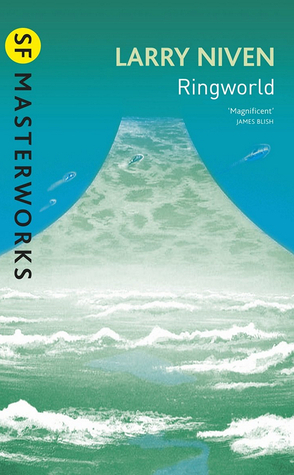
Ringworld
by Larry Niven
The artefact is a circular ribbon of matter six hundred million miles long and ninety million miles in radius. Pierson's puppeteers, the aliens who discovered it, are understandably wary of encountering the builders of such an immense structure and have assembled a team of two humans, a mad puppeteer and a kzin, a huge cat-like alien, to explore it. But a crash landing on the vast edifice forces the crew on a desperate and dangerous trek across the Ringworld.
Mentioned along with Dune by Lionel as a counter-example.

The Left Hand of Darkness
by Ursula K. Le Guin
A groundbreaking work of science fiction, The Left Hand of Darkness tells the story of a lone human emissary to Winter, an alien world whose inhabitants can choose - and change - their gender. His goal is to facilitate Winter's inclusion in a growing intergalactic civilization. But to do so he must bridge the gulf between his own views and those of the completely dissimilar culture that he encounters. Embracing the aspects of psychology, society, and human emotion on an alien world, The Left Hand of Darkness stands as a landmark achievement in the annals of intellectual science fiction.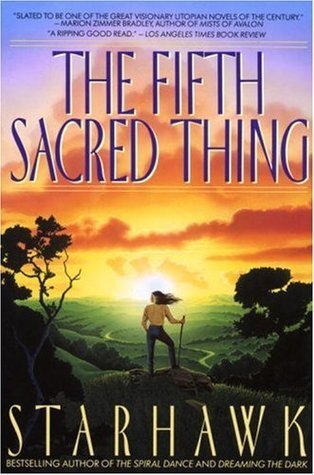
The Fifth Sacred Thing
by Starhawk
An epic tale of freedom and slavery, love and war, and the potential futures of humankind tells of a twenty-first century California clan caught between two clashing worlds, one based on tolerance, the other on repression.
Recommended by Jim and Julia
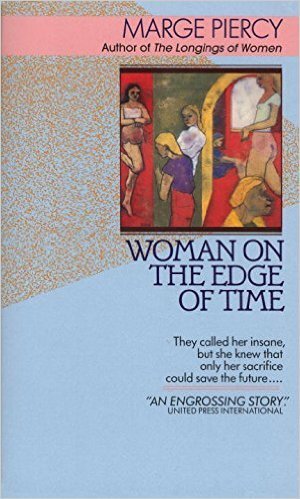
Woman on the Edge of Time
by Marge Piercy
After being unjustly committed to a mental institution, Connie Ramos is contacted by an envoy from the year 2137, who shows her a utopian future of sexual and racial equality and environmental harmony.
But Connie also bears witness to another potential outcome: a dystopian society of grotesque exploitation. One will become our world. And Connie herself may strike the decisive blow...
Recommended by Jim
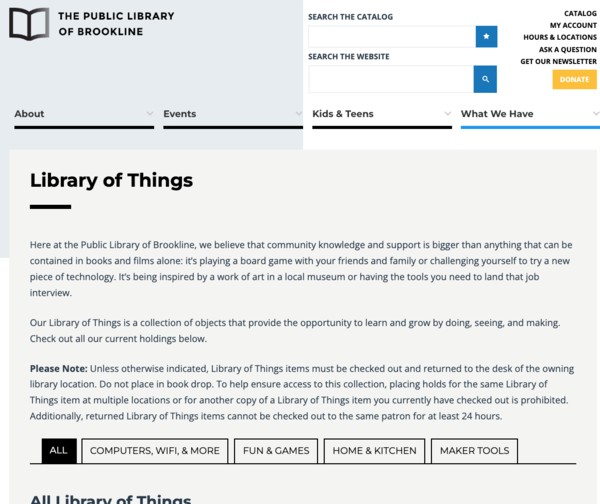
Library of Things
Here at the Public Library of Brookline, we believe that community knowledge and support is bigger than anything that can be contained in books and films alone: it’s playing a board game with your friends and family or challenging yourself to try a new piece of technology. It’s being inspired by a work of art in a local museum or having the tools you need to land that job interview.
Our Library of Things is a collection of objects that provide the opportunity to learn and grow by doing, seeing, and making. Check out all our current holdings below.
Mentioned by Julia
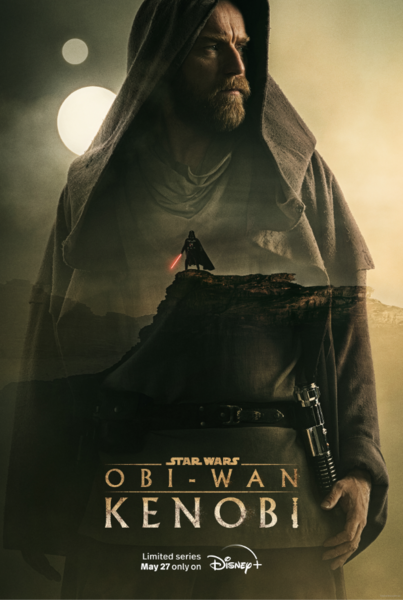
Obi-Wan Kenobi
Jedi Master Obi-Wan Kenobi has to save young Leia after she is kidnapped, all the while being pursued by Imperial Inquisitors and his former Padawan, now known as Darth Vader.
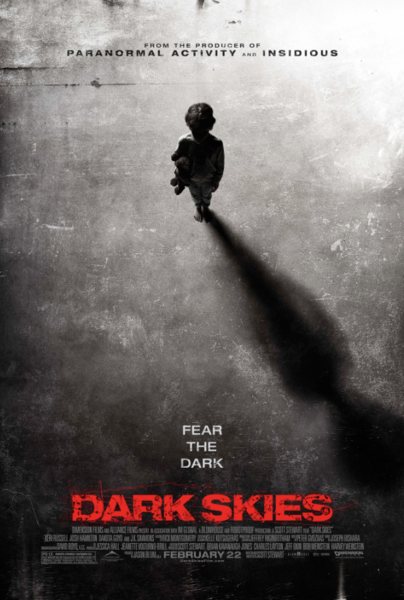
Dark Skies
As the Barrett family's peaceful suburban life is rocked by an escalating series of disturbing events, they come to learn that a terrifying and deadly force is after them, one which may have arrived from beyond the stars.
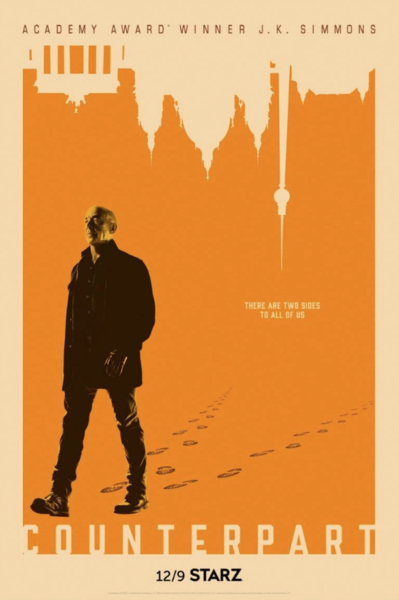
Counterpart
A hapless UN employee discovers that the agency he works for is hiding a gateway to a parallel dimension that's in a cold war with our own, and where his other self is a top spy. The war slowly heats up thanks to spies from both sides.
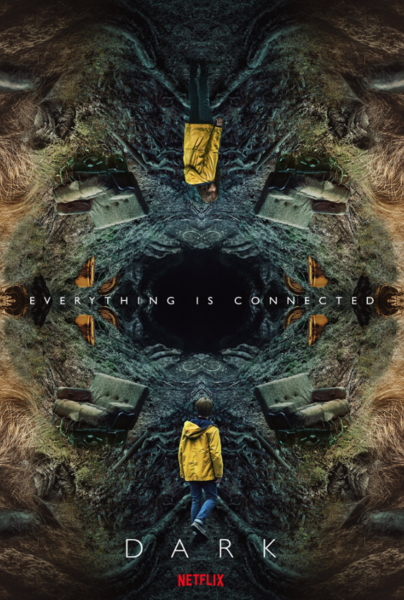
Dark
A family saga with a supernatural twist, set in a German town where the disappearance of two young children exposes the relationships among four families.
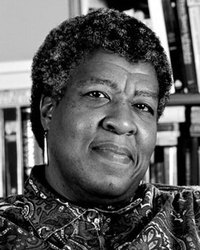
Octavia E. Butler
Octavia Estelle Butler was an American science fiction writer, one of the best-known among the few African-American women in the field. She won both Hugo and Nebula awards. In 1995, she became the first science fiction writer to receive the MacArthur Foundation "Genius" Grant.
After her father died, Butler was raised by her widowed mother. Extremely shy as a child, Octavia found an outlet at the library reading fantasy, and in writing. She began writing science fiction as a teenager. She attended community college during the Black Power movement, and while participating in a local writer's workshop was encouraged to attend the Clarion Workshop, which focused on science fiction.
Books mentioned by Jim and Julia, referenced here.
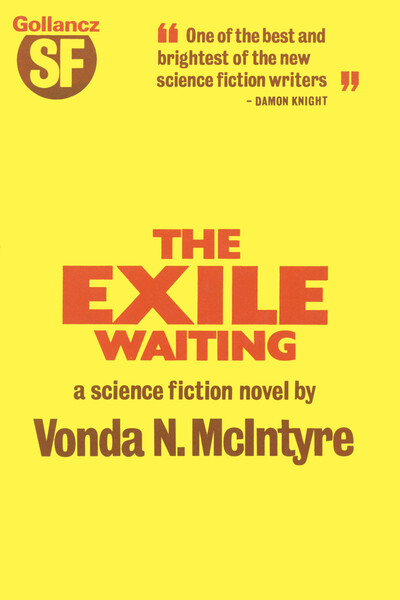
The Exile Waiting
by Vonda N. McIntyre
Mischa, a young thief whose capabilities are enhanced by hereditary mutation, is trying to escape with her drug-addicted brother from the dominance of her uncle. So when a starship arrives commanded by the twin alien pseudosibs Subone and Subtwo, Mischa seizes her chance. She is soon assigned for training to Jan Hiraku, who quickly realises that Mischa has immense abilities. All goes well until Subone, in a moment of cruelty, lures Mischa's brother into a fight and then kills him. Mischa attacks Subone and both she and Jan have to flee the wrath of the brothers and take refuge in the deep caves underneath the city.
Recommended by Julia Tenney




